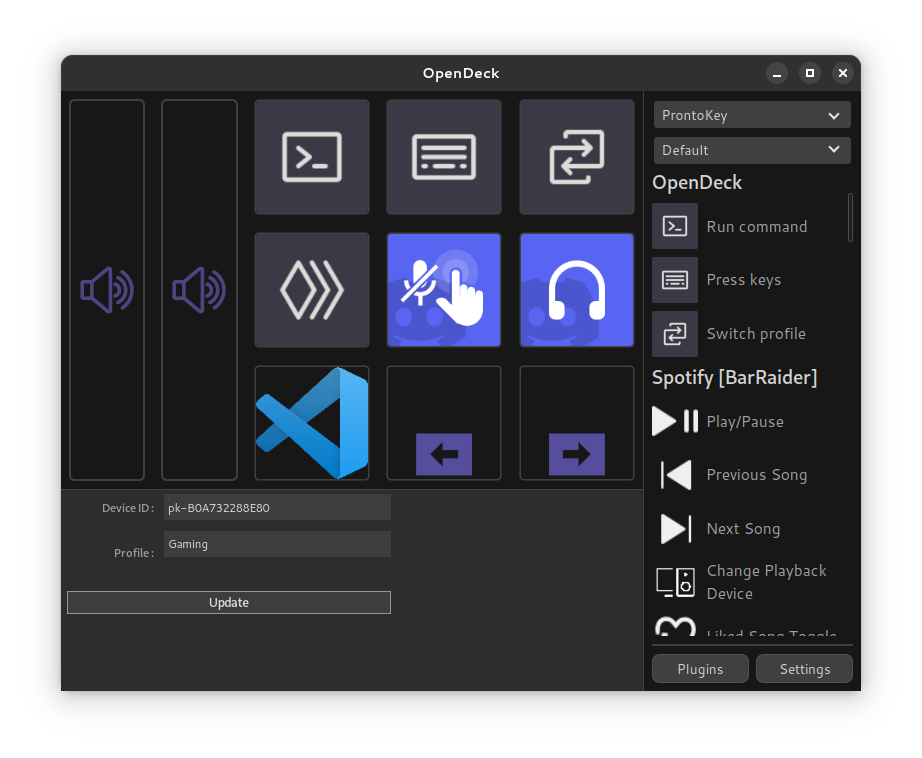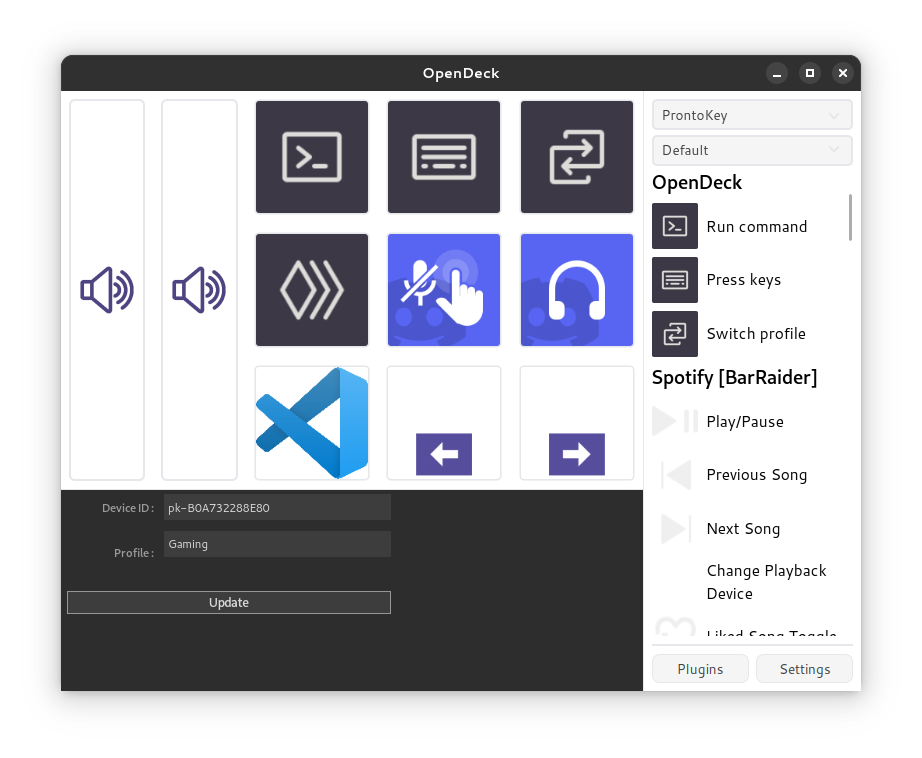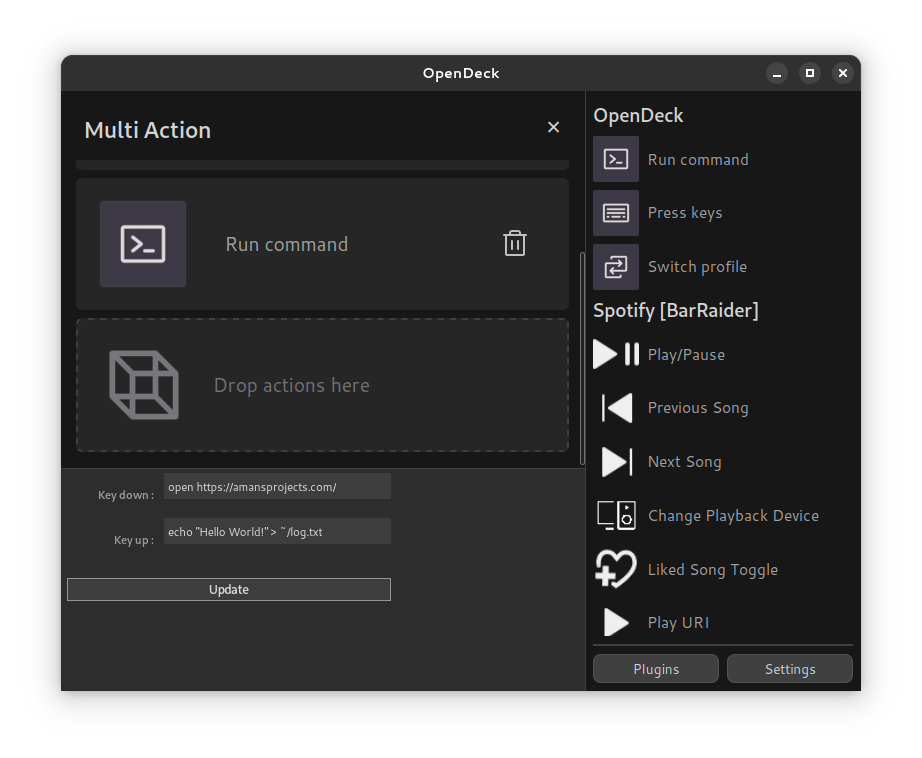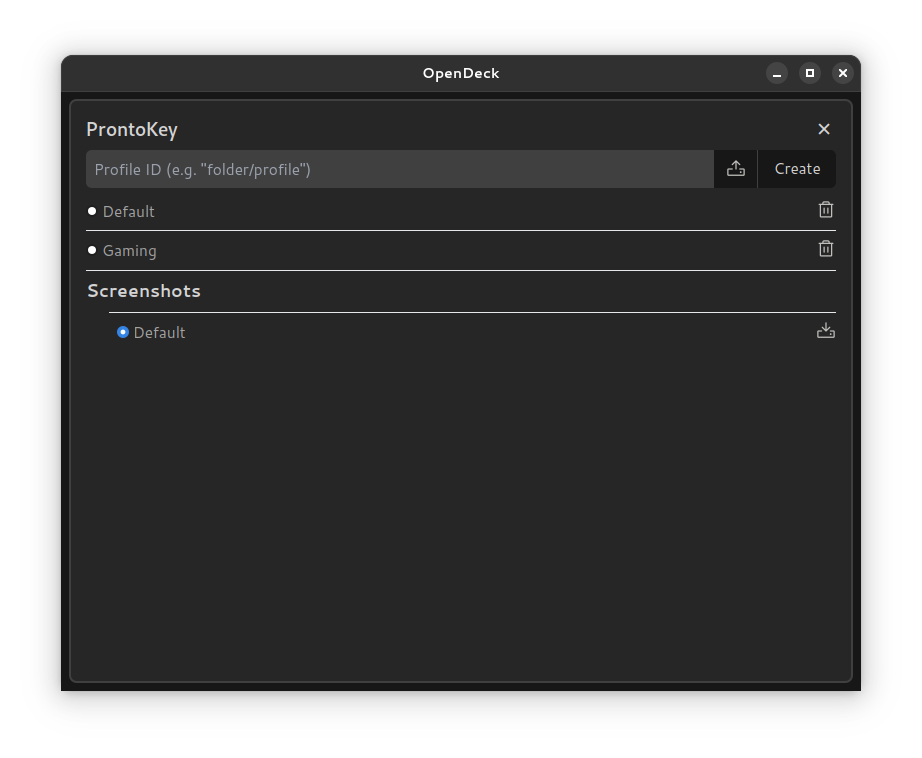OpenDeck is a desktop application for interfacing between human interface devices with keys or encoders and plugins, which provide actions to be carried out when the user interacts with the device. OpenDeck conforms to the OpenAction API, which is cross-compatible with the Stream Deck SDK, allowing a wide range of pre-existing plugins to be used.
OpenDeck supports ProntoKey and Elgato Stream Deck hardware on all three major desktop platforms. If you would like to contribute support for additional hardware (e.g. Loupedeck) feel free to reach out on any of the support forums and make a pull request!
- Download the latest release from GitHub Releases.
- Install OpenDeck using your package manager of choice.
- If using Elgato hardware, install the appropriate udev subsystem rules from here:
cp 40-streamdeck.rules /etc/udev/rules.d/sudo udevadm control --reload-rules
- Download the latest release from GitHub Releases.
- Double-click the downloaded file to run the installer.
- Download the latest release from GitHub Releases.
- Open the downloaded disk image and drag the application inside into your Applications folder.
- Open the installed application. Note: if you receive a warning about OpenDeck being distributed by an unknown developer, right-click the app in Finder and then click Open to suppress the warning.
To create a Multi Action, drag an action from the list onto another existing action in your profile. This should result in a Multi Action being created with those two actions. If nothing happens, it's likely that one or both of the actions don't support being in a Multi Action.
To view or modify an action's settings, left-click on it to display its property inspector. To remove an action or Multi Action, right-click on it and choose "Delete" from the context menu.
To edit an action's appearance, right-click on it and select "Edit" in the context menu. You should then be able to customise the image and title of each of its states. To choose an image from your device: left-click on the image, to reset it to the plugin-provided default: right-click on the image, and to remove the image entirely: CTRL+right-click on the image.
To select another device, or to view, switch, modify, import or export profiles, use the dropdowns in the top right corner. You can organise profiles into group-like folders by prefixing the profile name with the folder name and a forward slash.
To enable automatic launch on startup, the light theme, or to change the language plugins are localised in, open Settings. From here, you can also view information about your version of OpenDeck or open the configuration directory. To add or remove plugins, visit the Plugins tab.
- Check the OpenDeck log file for any important messages. This file should be included with any support request.
- GNU+Linux:
~/config/com.amansprojects.opendeck/logs/ - Windows:
%appdata%/com.amansprojects.opendeck/logs - macOS:
~/Library/Application Support/com.amansprojects.opendeck/logs
- GNU+Linux:
- When trying to run Windows-only plugins (which are the majority of plugins) on GNU+Linux or macOS, please ensure you have the latest version of Wine installed on your system.
- If your device isn't showing up, ensure you have the correct permissions to access it, and that you have restarted OpenDeck since connecting it.
You'll need to ensure that all of the prerequisites for building a Tauri application are satisfied to build OpenDeck (this includes the Tauri CLI from cargo install tauri-cli). On GNU+Linux, you'll also need libudev installed for your distribution. Then, ensure that the required frontend dependencies are installed with npm i(nstall). You can then use cargo tauri dev and cargo tauri build to work with OpenDeck.
When submitting a pull request, ensure that all of your Rust code has been formatted using cargo fmt, cargo clippy returns no violations, and modified Svelte code sticks to the existing style used as far as possible. Feel free to reach out on the support channels above for guidance when contributing!




